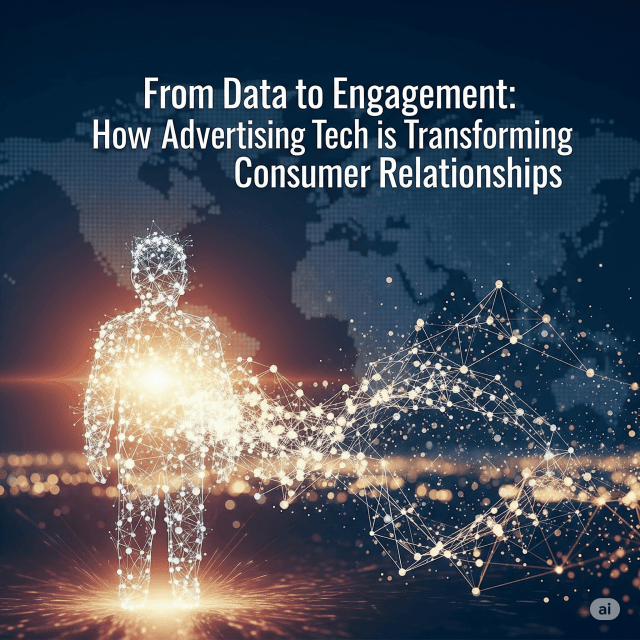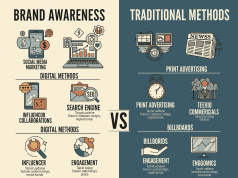In today’s digital age, where consumers are bombarded with information from various channels, the way brands connect with their audiences has evolved dramatically. Advertising technology (AdTech) is at the forefront of this transformation, bridging the gap between data-driven insights and meaningful consumer engagement. This article delves into how AdTech is reshaping consumer relationships, driving personalization, and fostering deeper connections.
The Data Explosion
The rise of the internet and social media has unleashed a torrent of consumer data. From online browsing behavior to social media interactions, companies have access to a wealth of information that can inform marketing strategies. According to industry reports, global data creation is expected to reach 175 zettabytes by 2025, emphasizing the sheer volume of information available.
AdTech harnesses this data, employing sophisticated algorithms and analytics tools to interpret consumer behavior patterns. By mining this vast treasure trove of data, brands can understand not only what consumers are buying but also how they think and feel about their products.
Personalization at Scale
Gone are the days of one-size-fits-all advertising. Today, AdTech enables brands to deliver highly personalized content tailored to individual consumer preferences. Utilizing machine learning, companies can analyze consumer data to create targeted advertising campaigns that resonate with their audience.
Personalized ads are more effective for several reasons:
- Relevance: Consumers are more likely to engage with content that speaks directly to their interests.
- Timing: Ads can be served at optimal moments in the consumer journey, increasing the likelihood of conversion.
- Enhanced Experience: Personalized interactions create a more enjoyable and engaging experience for consumers, fostering loyalty.
For instance, e-commerce platforms utilize predictive analytics to suggest products based on past purchases or browsing history, creating a seamless shopping experience that feels tailored to each user.
The Role of Automation
AdTech has also revolutionized how companies manage advertising campaigns through automation. Programmatic advertising allows brands to buy and sell ad space in real-time, optimizing ad placements across various channels. This efficiency not only reduces costs but also maximizes the impact of each campaign.
Automation tools enable brands to:
- Optimize Ad Spend: By analyzing performance metrics in real time, companies can adjust their strategies to invest more in high-performing ads.
- Target Specific Audiences: Automated systems can identify and reach niche segments of consumers based on detailed demographic and psychographic data.
- Reduce Human Error: Streamlined processes minimize mistakes and improve overall campaign performance.
Building Trust Through Transparency
As consumer awareness of data privacy grows, transparency has become a critical component of effective AdTech strategies. Brands must navigate the delicate balance between utilizing consumer data for personalized experiences and respecting their privacy.
New regulations like the General Data Protection Regulation (GDPR) and California Consumer Privacy Act (CCPA) mandate that companies disclose how they use consumer data, fostering a culture of transparency. By being open about data practices, brands can build trust with their customers, transforming data collection from a perceived invasion of privacy into a mutually beneficial relationship.
Engaging Through Multiple Channels
AdTech enables brands to create cohesive cross-channel marketing strategies that enhance consumer engagement. Integrated campaigns that span social media, email, and mobile can reach consumers at various touchpoints, reinforcing brand messaging.
This multi-channel approach allows brands to:
- Increase Visibility: Consistent messaging across platforms keeps brands top-of-mind for consumers.
- Enhance Interactivity: Engaging content that invites consumer interaction—such as polls or user-generated content—can lead to deeper connections.
- Collect Comprehensive Insights: Data collected from multiple channels can provide a holistic view of consumer behavior, informing future strategies.
The Future of AdTech and Consumer Relationships
As technology continues to advance, the future of advertising promises even more transformative changes. Innovations such as augmented reality (AR), artificial intelligence (AI), and the metaverse are on the horizon, presenting new opportunities for engagement.
AdTech will play a crucial role in these developments, harnessing data to create immersive experiences that resonate with consumers on a deeper level. Brands that prioritize ethical data practices and invest in technology will thrive in this rapidly evolving landscape.
Conclusion
Advertising technology has fundamentally altered the way brands engage with consumers, transforming data into meaningful interactions. By leveraging data analytics, personalization, automation, and transparency, companies can build stronger relationships with their audiences. The journey from data to engagement is not just about selling products; it’s about understanding and responding to consumer needs in an authentic and impactful manner. As we look to the future, the potential for innovation in AdTech offers exciting possibilities for brands and consumers alike.









